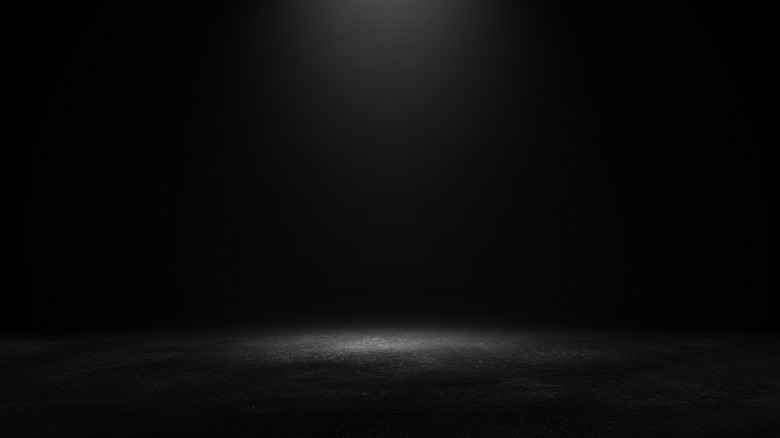The Restaurant That Leaves You In The Dark — Literally
You are at a new restaurant that just opened, and while it is too new to have any solid reviews, you have heard that it involves a rather unconventional dining experience. Everything seems ordinary enough, so you are not too sure what is so different about this place. It is only when you hear the sound of the door closing and the lights suddenly go out, leaving you in darkness, that you understand what is happening.
The idea of eating in the dark may sound like a strange restaurant innovation from the culinary world, but "dark dining" has become much more regular within the industry. One such establishment that has customers eating in the dark is Opaque, located in Santa Monica, California. As HuffPost describes, customers are led into a lightless, pitch-black room, where blind servers aid the presumably-confused patrons in navigating their meals.
It is not just California that has this style of eating either. A group dedicated to this unique experience, known as Dining in the Dark, offers customers the chance to "tantalize [their] taste buds" in cities across the United States and Europe, such as Seattle, Houston, Detroit, and Paris, among others.
The concept is rooted in a simple idea: If you are denied sight, your other senses will become more active to compensate. But is this an actual fact or yet another myth?
The idea is built around heightened senses
The unconventional presentation of dining in the dark rests on the premise that your senses, such as taste and smell, are heightened in the absence of sight. Theoretically, you can smell all of the herbs in your chicken or taste the complex flavors of the sauce on your pasta with much more clarity. But does this idea really hold water, or is it all just a trick of the brain when we find ourselves unable to see? The answer may be a little bit of both.
According to LiveScience, people who were blind at birth or from a young age may have "enhanced senses" due to the brain adapting to make the most of one's surroundings. While it certainly does not mean a blind person has some sort of "super" hearing or taste (at least, as far as we know), the process of neurons in the brain making new connections to better interact with the environment is what is responsible. A 2019 study from the University of Washington on the differences in hearing between the blind and able-sighted revealed that the former had a narrower "neural tuning," meaning that blind individuals can better pick up sounds in an environment.
While eating in the dark to more strongly call upon other senses may sound a bit odd, this is hardly the first time restaurants have done something bizarre to create a unique atmosphere for those willing to partake.

